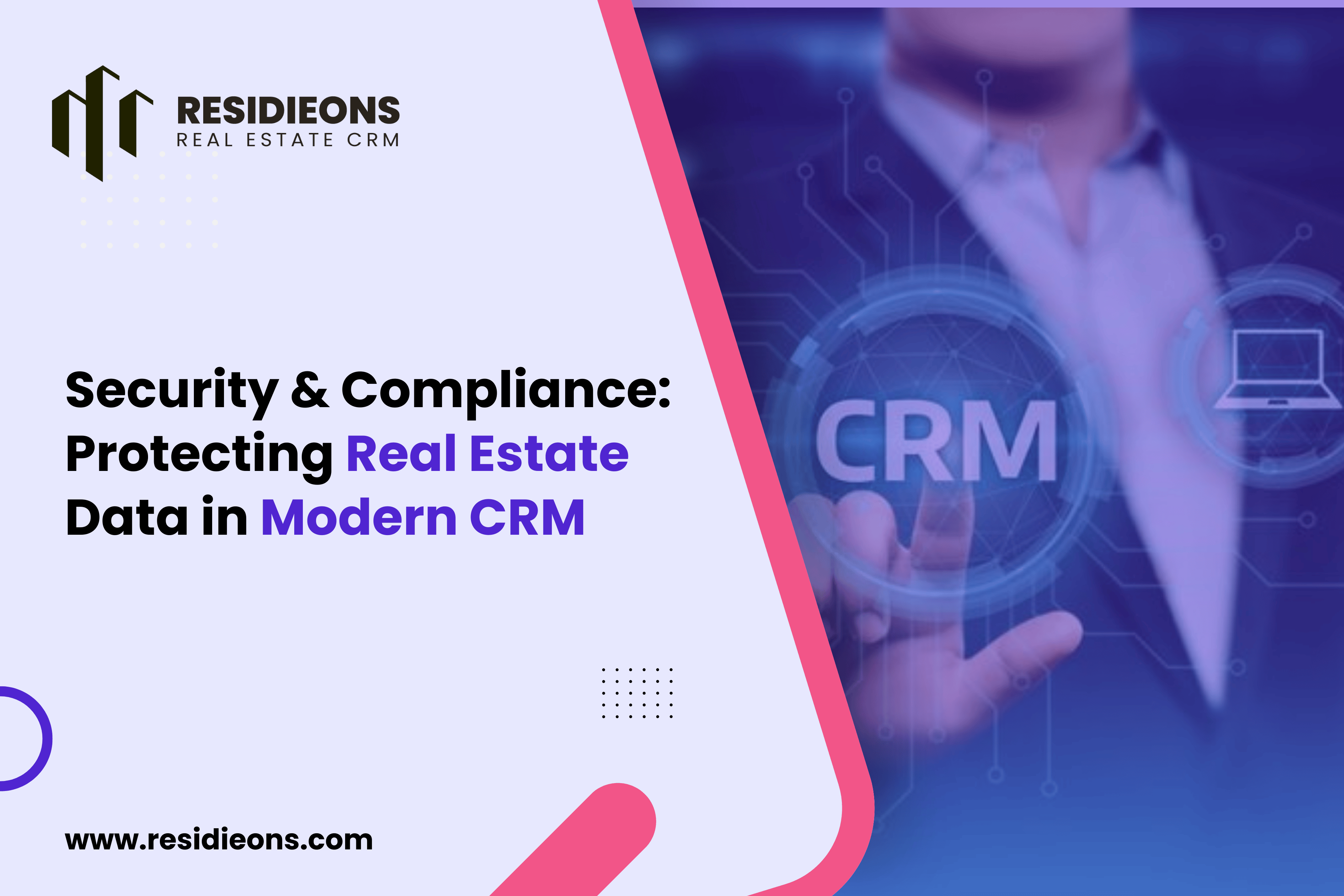
The Indian real estate market is rapidly growing. In short, the industry is anticipated to witness a 15-18 million rise in demand up to 2025 for real estate. This sector is burgeoning right now, and for an industry of such status to keep its growth steady and viable with its working style of thousands of years is quite challenging. It requires an X factor, something that will be instrumental in making the sector transform and move with the times. Well, real estate CRM software is that X factor! We have to understand first what is possible with CRM technology to know how it can assist this industry.
How Does Software for CRM Operate?
CRM means Customer Relationship Management: a system that records and manages all of your interactions with customers. While that's the basic definition of such software, its benefits extend far beyond that:
It provides one platform for all your data.
It analyzes data and creates interpretive results.
It helps you view the complete shopping experience of your customers.
It helps in determining the various pros and cons of your operations.
The entire operation of a company can be smoothly streamlined when a CRM manages all these important activities. Besides doing all these functions, real estate CRM software also helps in the growth of sales. It is thus no wonder that the real estate CRM market will be worth $15.8 billion in 2027.
Let us look at the functions of CRM in real estate and why this type of software is important in this industry.
It helps you identify your operational advantages and disadvantages.
Why Is CRM Required for Real Estate?
Real estate offers high-involvement products, and its customers have longer buying cycles. Thus, some problems that are inherent to this industry come up. The only way to transcend these challenges is through CRM.
1. Large Volumes of Data:
The real estate industry is voluminous in its transactions, and generating voluminous data is part of the by-product. It may mean pre-sales activities, marketing metrics, Channel Partner transactions, information related to payments, etc. For a real estate company, dealing with such data in the absence of a CRM system is impossible.
2. The Need To Maintain Client Engagement:
During the lengthy buying cycle, real estate customers must be retained as customers. Only efficient customer engagement strategies will compel them to close a sale. A real estate business must employ targeted marketing and communication skills to drive sales.
3. The Need To Quickly Determine Issues With The Operations:
All the transactions within the sector are high-value but not very frequent. Consequently, a real estate company cannot afford to have unresolved problems in its operations considering the limited chances to make good. The CRM tools help to find these errors that can be amended to help improve operations altogether.
How Does a Real Estate CRP Operate?
It functions primarily by offering help to the industry with the problems mentioned above. Furthermore, work done by it covers the following aspects of a real estate company:
1. Effective Lead Management:
Leads are the people that are going to be potential business buyers for an organization. To effectively close a deal in favor of the business, it must be able to manage about five or six leads it has come in from one source every day. But what if there are 100 to 150 leads, generated from different channels? Manually processing them could make it possible for a few leads to be missed, or for that information to be lost. CRM can facilitate lead management by:
Automatically collecting leads from all the sources
Providing lead scoring so that you can concentrate only on the right leads
Nurturing these leads to maintain good relations with your customers.
Complete funnel lead analytics that let you track all the relevant information.
2. Automated & Personalized Marketing:
Marketing is a must to boost sales. Using real estate CRM software will completely revamp your marketing initiatives and thereby help your company achieve its goals.
All your communication will be timely and also coordinated as a result of automated marketing. Without the assistance of technology to get this done, there is every possibility of delays ensuring. Additionally, it allows you to personalize your marketing towards the particular pain points of your target customers.
3. End-to-End Sales Management:
There are three aspects to the sales process for real estate companies.
Pre-sales is the starting thing; in other words, it is the first step when the customer interacts with your brand. All the features in CRM will help you optimize all activities before the sale, like setting up auto lead routing.
Sales would be the second factor. CRM could do many more to speed up sales in real estate including the following
Monitoring and managing site visits
Utilizing data in real-time to create a positive user experience
Inventory control
Developing a sales pipeline that enables you to monitor and track every transaction to completion
Finally, post-sales management, in services of real estate, document handling and storage, setting up and execution of contracts, and law compliance are effectively and very efficiently done with CRM.
As such, real estate CRM software optimizes every part of business operations. Residieons with its comprehensive feature set can help you grow your real estate company. This is the perfect associate with which to help you increase your sales and enhance team productivity.

The real estate market is changing very quickly today, and if you want to s
Read More...


If you are in the real estate business, you already know how tou
Read More...
In today’s competitive real estate market, managing leads, foll
Read More...